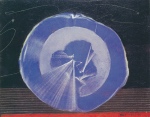Abstract
History-writing has a central place in the rich, extensive literature of medieval Ireland and in depicting their past, learned authors employed their own vernacular creatively and confidently. The biblical and classical frameworks within which they constructed Ireland's story, as well as their modes of expression reflect those of their European contemporaries, yet this corpus of texts is rarely considered when the writing of history in the early and central Middle Ages is explored. Focussing on narratives in their manuscript context, this article will situate medieval Irish historical writing within the broader Latinate literary culture of which it formed an integral part. In so doing, the intellectual heritage of scholars such as Marianus Scotus whose formative education was in Ireland will be illuminated, and the debt to the Irish strand in their cultural makeup assessed. Moreover, the relative linguistic harmony in Irish learned circles in which Latin and vernacular written media were interwoven in a mutually beneficial embrace can help better inform our understanding of cross-cultural European elite interaction at the time.Except where otherwise noted, the content of this site is licensed under a Creative Commons Attribution-ShareAlike 4.0 International (CC BY-SA 4.0).
Authors retain copyright of their work. The CC BY-SA 4.0 licence allows readers to copy and redistribute the material in any medium or format, and to remix, transform, and build upon the material for any purpose, even commercially, as long as the original author is credited and as long as any works that are derived from the original are distributed under the same terms.
Downloads
Download data is not yet available.

